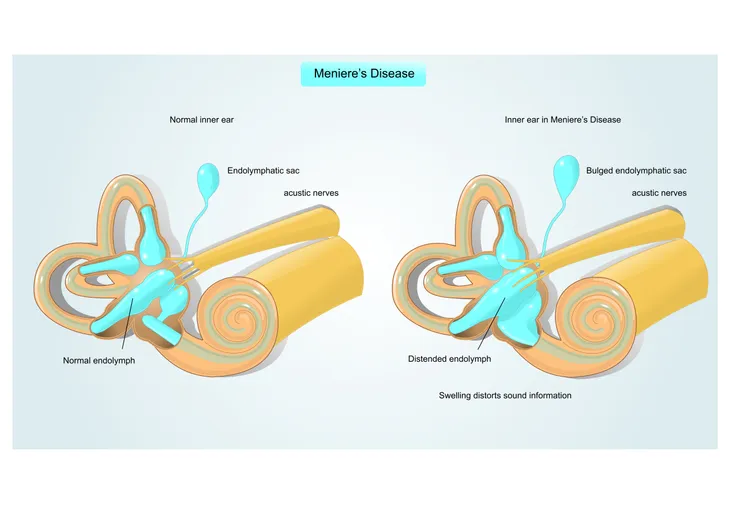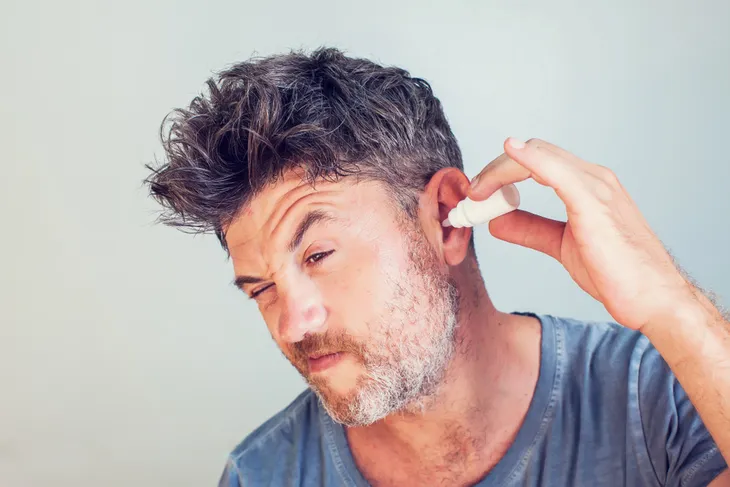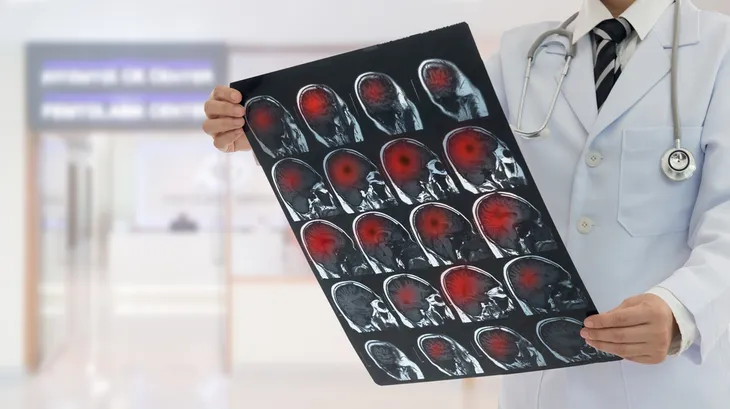Imagine standing on solid ground but feeling as though you’re on a circus ride, your balance feeling anything but steady, your brain telling you that your body is moving when it’s clearly not. That, in a real sense, is what living with vertigo is like. It’s frightening and can make even the simplest activities, like getting through the workday or driving to the cottage for the weekend, vastly more challenging than they should be.
But what causes vertigo? And what treatments are available for those individuals who suffer from this condition? Let’s take a closer look at some of vertigo’s causes, and what can be done to limit its symptoms…
1. Cause: BPPV
What could possibly cause someone standing squarely on firm ground to feel like they’ve just jumped on a moving roller coaster? One cause may be problems affecting the inner part of our ears, a condition known as benign paroxysmal positional vertigo (BPPV).
That may not sound like your typical cause of something like vertigo. But when calcium particles (otherwise known as canaliths) build up in the ear canal, it can result in the brain becoming confused about the way our head is positioned and the relation between our physical standing and the world around us. In short, the buildup of calcium in the inner ear can actually lead to a highly problematic disconnect between our body and brain, leading to vertigo. As for explaining why BPPV emerges, doctors still aren’t sure, although it becomes more likely as one grows in age.
2. Cause: Meniere’s Disease
Another inner ear issue that can result in vertigo, in addition to BPPV, is Meniere’s disease. This is similar to BPPV in that it’s caused by a buildup of a substance in the canals of the inner ear, but different in that the buildup involves fluid rather than tiny bits of calcium.
In addition to leaving an individual feeling as though they’ve lost control over their balance, Meniere’s disease can lead to a patient hearing a ringing sound in their ears, a problem often referred to as tinnitus. In time, Meniere’s disease can also lead to hearing loss.
3. Cause: Inner Ear Infection
Vertigo, or the feeling that one is losing their balance even when they’re standing on solid ground, can be caused by a type of inner ear infection known as labyrinthitis. Sometimes referred to as vestibular neuritis, the condition results in the inner ear canal becoming highly inflamed.
This in turn can cause the nerves in this area to swell and confuse the brain about the body’s positioning in relation to the world around it. The result is a feeling of gravitational helplessness, and the feeling that the body has no coherent sense of balance.
4. Cause: Head Injury
The brain is easily the most complicated part of the human body, with medical researchers still unlocking its many, many secrets. As such, there are many problems that can emerge when the head and brain sustain a significant injury, such as through a traffic accident, sports injury, or fall.
One of the possible results of a serious head injury can be vertigo, or the loss of balance. This is because a serious head injury can cause significant inflammation in the deeper parts of the ear, leading to swelling affecting the nerves. This kind of inflammation so close to the brain often causes a disconnect between the body and brain, resulting in a loss of balance.
5. Cause: Stroke or Brain Tumor
Vertigo is often caused by a buildup of calcium deposits or fluid in the inner ear, but it can also be related to trauma impacting the brain. This may involve external shocks, such as an injury resulting from a serious traffic accident or sports collision, but it can also be related to internal trauma, such as that associated with a stroke or the emergence of a tumor on the brain.
A stroke is caused when there’s a problem affecting how blood travels around the brain. Often, it’s the result of a blood clot preventing free and easy movement of blood through veins and arteries or the result of a blood vessel bursting, causing the brain to react. Meanwhile, a tumor can place pressure on parts of the brain, possibly leading to an individual acting strangely, such as by experiencing memory problems, or losing their sense of balance.
6. Cause: Migraines
It seems like there’s a trend emerging here: problems affecting the brain, whether through a stroke or serious head injury, can often result in vertigo (the feeling that one has lost their balance).
A migraine isn’t the same as suffering a stroke or concussion, but it’s often the result of those problems. Particularly painful migraine headaches can result in an individual experiencing issues not associated with the typical headache, such as sensitivity to light and sound. Additionally, a migraine can impact one’s feeling of balance, leaving them feeling unstable. It may also lead to a feeling that the world is spinning, tilting, or swaying around them. In this scenario, the best solution is to lay down until the migraine has passed.
7. Treatment: Patience
Experiencing vertigo, or the loss of balance resulting from inner ear problems or trauma to the brain, often results in a patient seeking immediate treatment. This is very understandable, as not feeling confident in your sense of balance can make it difficult to do just about anything, from simply walking down the street to driving a vehicle.
But many doctors won’t immediately respond to a patient experiencing vertigo with a radical treatment, such as surgery. That’s because vertigo is often caused by temporary issues, such as inflammation caused by infection, that can be resolved by simply waiting and revisiting the issue to track its progress.
8. Treatment: Medication Change
Vertigo can be caused by migraine headaches, which may be the result of a switch in medications. Patients with mental health conditions may be on particularly powerful medications that, when switched, can result in temporary problems like vertigo. In these cases, a doctor will evaluate the value of maintaining the new medication or switching to something else. If the doctor’s position is that the loss of balance is only temporary, he/she may press the patient to exercise patience until the brain acclimates to the new medication.
However, if a doctor determines that the vertigo is not caused by a medication, he/she may recommend trying a medical option to help restore the sense of balance. In fact, there are several treatment options involving medications that can actually help compensate for the feeling that balance has been lost. For example, antibiotics and steroids can both be used to help reduce inflammation linked to vertigo.
9. Treatment: Vestibular Rehabilitation
Vertigo, or the feeling of loss of balance, is often caused when the signals between the brain and rest of the body become interrupted. This involves the vestibular system, which is responsible for ensuring those signals are sent in a coherent way.
For that reason, doctors may prescribe vestibular rehabilitation to any patient experiencing consistent vertigo. This rehabilitation involves evaluating the extent of the vertigo and its causes and then taking action to train the brain to accommodate balance issues. In essence, it’s about helping the brain understand the problem and find ways to get around it. This can actually involve teaching your other senses to act in ways that help the brain and body compensate for recurrent episodes of vertigo.
10. Treatment: Canalith Repositioning
One of the primary causes of vertigo is BPPV. It emerges when calcium buildup, known as canaliths, affect the inner ear in a way that results in an individual feeling like their sense of balance has been negatively impacted.
To help with this problem, doctors sometimes turn to canalith repositioning techniques. In this scenario, movements are made to the neck and head to try and move the canaliths; the goal being to shift the calcium deposits out of the inner ear into a place where they can be seen, grasped, and physically removed from the body. With the help of a doctor, canalith repositioning can help eliminate vertigo for the foreseeable future.
11. Treatment: Water Pills
One possible cause for vertigo is Meniere’s disease, which involves the buildup of fluid in the inner ear, thereby confusing the brain about its relation to the world around it. The shifting of fluid in this part of the body can cause the brain to think it has lost balance when the reality is very different.
To help with Meniere’s disease, many doctors turn to water pills, or diuretics, which can be used to help alleviate fluid buildup and the pressure this causes on the inner ear and brain. In time, these water pills can help dissipate the vertigo and restore an individual’s sense of balance.
12. Treatment: Surgery
As with most conditions, surgery is considered the last treatment option for vertigo. That’s because vertigo is typically caused by brain trauma or problems affecting the inner ear, both of which are highly sensitive and difficult to operate on without introducing the possibility of serious complications that may be worse than vertigo.
That said, surgery will sometimes be used in cases where vertigo is the result of a tumor or a serious neck or brain injury, all of which can place excessive pressure on the brain. But even in these cases, doctors will likely try far less invasive treatment options before moving towards surgery.















